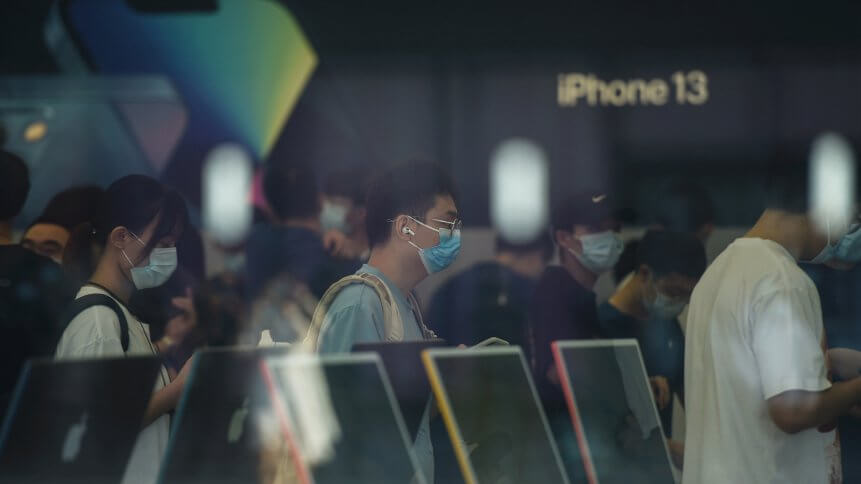- The chip shortages could just leave hundreds of people waiting to get their hands on the new iPhone 13
- Apple expected to produce 90 million new iPhone models in the last three months of the year — but that might change
- The reduction is attributed to Broadcom Inc.’ and Texas Instruments Inc.’s difficulties to deliver enough components
Apple Inc. launched its latest iPhone 13 handset and other affiliated products last month. But like every iPhone launch, there is an inevitable waiting period, a signal of good demand for Apple. However this year, the picture is a little different. The wait time expected for any iPhone 13 model has been prolonged ever since the phone was launched, due to lingering and persistent global chip shortages.
And to top it off, industry watchers reckon it’s only going to get worse. Analysts at Credit Suisse said recently that the wait times for the iPhone 13 family of devices remain extended across the board. Customers who want the iPhone 13 Pro and Pro Max have to wait in excess of four weeks, the longest wait period in at least four years, noted the team at the Swiss bank.

The gap between ordering a chip and delivery hit a record 21.7 weeks. Source: Susquehanna Financial Group
For context, the analysts’ methodology for calculating waiting periods involved measuring shipping lead times for iPhones purchased directly from Apple online stores, in major markets around the world. They exclude demand through Apple’s physical stores, as well as distribution via carriers and other retail avenues.
Meanwhile, the wait time for iPhone 13 is currently at two to four weeks, the analysts noted, and will remain similar or grow modestly longer over time. Historically, wait times have been viewed as an indicator of demand for devices and now, the company is even struggling to make enough of the Apple Watch Series 7 and other products.
Indeed, the situation is much more complicated this time around, as the world is gripped by supply-chain issues. Consensus claims that wait times for some Apple product models are at multi-year records.
Are the prolonged chip shortages causing delays?
Bloomberg is reporting that Apple has been forced to cut its production order of the iPhone 13 by 11% (10 million units) due to the ongoing global chip shortage. “Apple is likely to slash its projected iPhone 13 production targets for 2021 by as many as 10 million units as prolonged chip shortages hit its flagship product, according to people with knowledge of the matter.,” the report claims.
To recall, the company had expected to produce 90 million new iPhone models in the last three months of 2021, but Bloomberg highlighted how Apple is telling manufacturing partners that the total will be lower, because Broadcom Inc. and Texas Instruments Inc. are struggling to deliver enough components.
Texas Instruments is where Apple gets its displays from, while Broadcom is its longtime supplier of wireless components. “One TI chip in short supply for the latest iPhones is related to powering the OLED display. Apple also is facing component shortages from other suppliers,” the report reads.
Chip shortages aren’t the only factor in the supply hiccups being faced by Apple. A recent Nikkei report claims that Apple suppliers in China are scrambling to keep production on track ahead of the busy holiday season due to widespread power outages in the country.
The source who spoke to Nikkei said power outages had been sporadic since mid-September, until they began getting notices every week telling them which days the following week that power would be cut. Apple suppliers have reportedly already warned that power cuts threaten supply chain continuity, but concerns have grown that the disruption will last until the end of the year — or worse, longer.


























